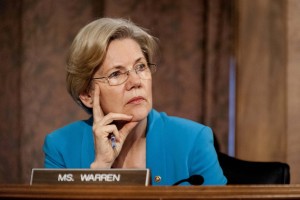Massachusetts’ senior senator is calling for greater regulation of banks in the wake of new revelations that megabanks have continued to profit from money laundering and other illicit dealings despite warnings from regulators.
According to the International Consortium of Investigative Journalists, leaked government documents show that the banks continued moving illicit funds even after being warned of potential criminal prosecutions. The documents were obtained by BuzzFeed News and shared with the ICIJ.
The consortium reported that documents indicate that JPMorgan moved money for people and companies tied to the massive looting of public funds in Malaysia, Venezuela and the Ukraine. The bank also processed more than $50 million in payments over a decade for Paul Manafort, the former campaign manager for President Donald Trump, according to the documents, which are known as the FinCEN Files.
The consortium’s investigation found the documents identify more than $2 trillion in transactions between 1999 and 2017 that were flagged by financial institutions’ internal compliance officers as possible money laundering or other criminal activity, and $1.3 trillion of that activity took place at Deutsche Bank.
The London bank HSBC, Europe’s largest, acknowledged in 2012 that it had laundered at least $881 million for Latin American drug cartels. However, according to the report, HSBC continued to manage money for shady clients, including suspected Russian money launderers and a Ponzi scheme under investigation in multiple countries.
“Big banks and companies abuse legal loopholes and weak enforcement by regulators to profit from illegal and shady transactions for criminals and terrorists. We must root out this corruption by strengthening transparency of financial networks and clamp down on the dark money that flows through the global financial system,” Warren said in a statement released by her office. “We also need to go further to hold the executives of the giant banks accountable by passing my Ending Too Big to Jail Act to reform the deferred prosecution agreement system that has allowed these bankers to walk away with drop in the bucket settlements and slaps on the wrist, and to create a new investigative unit at Treasury to investigate these types of financial crimes.”
Warren’s Too Big to Jail Act would create a permanent law enforcement unit to investigate crimes at financial institutions, require senior executives at banks with $10 billion or more in assets to certify annually that they have conducted due diligence and found no criminal conduct or civil fraud within the financial institution and mandate judicial oversight of deferred prosecution agreements (DPAs). Her office promised the bill would “shut the revolving door between financial institutions and the regulators who are supposed to oversee U.S. transparency and money-laundering efforts.”
The revelations shook megabank stocks yesterday. JPMorgan Chase shares closed 3 percent down, HSBC shares shed 5.5 percent on top of a 50 percent drop earlier this year and Deutsche Bank slid down 8.3 percent.
Deutsche Bank has been under scrutiny for years. The bank, based in Frankfurt, Germany, agreed to pay the state of New York $150 million to settle claims that it broke compliance rules in its dealings with the sex offender Jeffrey Epstein. Epstein killed himself last August in a Manhattan federal jail while awaiting trial on sex trafficking charges.
In 2018, German authorities raided Deutsche Bank’s headquarters on suspicions that its employees helped clients set up offshore companies that were used to launder hundreds of millions of euros. The case was spurred by the release of the Panama Papers. A long-running money-laundering investigation of the bank is being pursued by federal prosecutors in New York.
In the wake of the Epstein scandal, Deutsche Bank said it had invested almost $1 billion to improve its training and controls and had boosted its staff overseeing the work to more than 1,500 employees “to continue enhancing our anti-financial crime capabilities.”
For years, Deutsche Bank has wrestled with regulatory penalties and fines, high costs, weak profits and a low share price. The bank went three straight years without turning an annual profit before recording positive earnings of 341 million euros for 2018.




 |
| 


